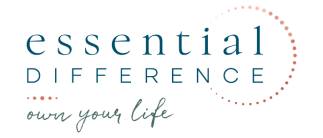I’m going to take a deep dive into something really important to most of us if not all of us.
A deep desire or need to be authentic and to feel safe in doing so.
The Cambridge Dictionary states authenticity is ‘the quality of being real or true’.
We live in a culture that has developed slowly over time subliminally creating many concepts. One of those concepts is that living authentically comes at a price. That price may be feelings of being judged, criticised, rejected, alienated, embarrassed, or ridiculed. It’s a steep price to pay when it impacts our confidence, direction, and connection to true self.
The price inevitably has some degree of pain attached to it and therefore, to avoid the pain we subconsciously adjust to a protective state. Swapping an authentic opinion, action, behaviour, word, smile, or way of dressing for something else that we believe will be more acceptable. The reward? Feelings of acceptance, validation, approval, recognition, appreciation, encouragement, support, or reassurance – and is that reward satisfying ‘enough’ when masked by the swapping out of ‘authenticity’? Overtime with repetition this can result in anxiety, second-guessing oneself, lack of fulfillment, loss of identify, confusion and more.
“It takes courage…to endure the sharp pains of self-discovery rather than choose to take the dull pain of unconsciousness that would last the rest of our lives.”
Marianne Williamson
Perhaps there’s a concept here that you can’t have one without the other? Is that in and of itself entirely true? Or is it more so that we as a population, a specie hasn’t yet really embraced each other for who we are as we are?
An example might be a situation whereby someone shares an opinion (I’ll add here that how it’s shared is critical to the process) that triggers a process of doubt. Over time that seed develops into a well-practiced path of second guessing oneself and may even evolve further into anxiety or perfectionism.
Let me preface this by saying that most of the time these interactions aren’t consciously malice. We are all in this together. We’ve all carried the baton. We convince ourselves that we are being authentic by being ‘honest’. We are very clever at convincing ourselves that what we say and do is right and for the best! And it may be, and it may not be. This is not to place blame rather bring awareness. You can’t change something you have no awareness around.
Being authentic starts with knowing yourself and being intentional in your decisions and actions based on what feels real and true. As I write this article, my thoughts say, ‘can I really say this’, ‘what authority do I have to say what I’m saying’, ‘it’s to forthright’ the thoughts are endless; hello ‘self-critic’. The result, questioning what ‘feels right’ and naturally that comes at a price if I listen and get drawn into that pattern. Instead, I’ve decided to be intentional in my action to publish this article based on it feeling real and true, that it is a genuine and authentic representation of my experience and knowledge.
Being real and true, takes time and practice. It took to this moment to develop into where you are at right now and it will take ‘practice’ to retrain what’s been learnt along the way. No different to learning something new in a job or a new dish you’ve never cooked. It takes practice, practice, practice. ‘Slow and steady’ really does make a difference, a long-lasting difference!
I invite you to first practice being aware of when you swap out your authenticity for something else. How you deliver your authenticity is just as important as authenticity itself.
Being aware of that transition is a powerful moment.
Just practice. It’s your journey.
Rosetta x

